Wood Receives NIH K08 Grant
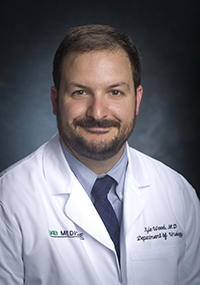 Assistant Professor Dr. Kyle Wood was recently awarded a K08 grant by the National Institutes of Health (NIH).
Assistant Professor Dr. Kyle Wood was recently awarded a K08 grant by the National Institutes of Health (NIH).
The K08 grant is a 5 year NIH mentored clinical scientist research career development award titled “Obesity ad Endogenous Oxalate Synthesis”. There has been increasing prevalence in both kidney stone disease and obesity throughout the United States, especially in the Southeast, and this grant will evaluate the role of oxalate, a main component of the most common type of kidney stone.
The Department of Urology's Kidney Stone Research Laboratory has demonstrated that with increasing BMI, there is an increase in the body’s creation of oxalate. Understanding these associations and mechanisms may lead to future therapies.
Dr. Wood's mentors and collaborators include Barbara Gower, PhD; Ross Holmes, PhD; Dean Assimos, MD; Jennifer Pollock, PhD; Robinna Lorenz, MD, PhD; Sunil Sudarshan, MD; and John Knight, PhD. All are distinguished faculty at UAB.
My Experience: Urology in Europe
Dr. Patrick Selph was chosen to be a part of this year’s American Urological Association (AUA) and European Association of Urology’s (EAU) Academic Exchange Program. The program is designed to provide young urology faculty with an international perspective on urologic medicine and allows the sharing of knowledge and experience between the AUA and EAU. Dr. Selph spent 18 days visiting European institutions and attended the EAU annual meeting in Copenhagen, Denmark.
Dr. Selph writes about his experience:
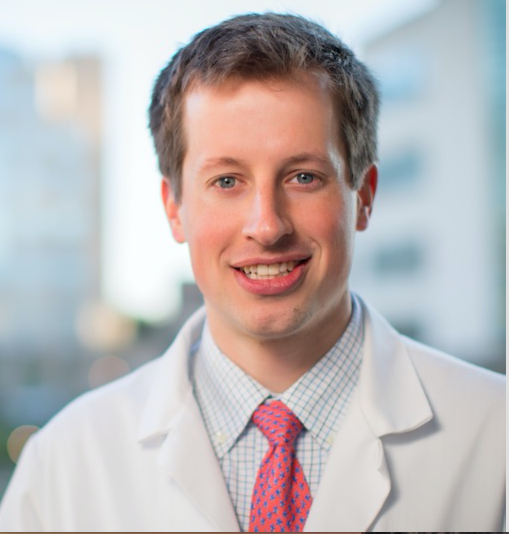 "The trip began in Sheffield, England where I met with Christopher Chapple, the secretary general of the EAU. There, I learned about the nuances of the NHS in England, including how the government system has allowed them to perform many randomized trials on MRI and treatments for prostate cancer. Treatment for patients in NHS have a benign problem and can be many months from the time of diagnosis, but a private healthcare system exists that gives patients the opportunity to get surgeries done quicker but at a cost. I also observed multiple surgeries in England including robotic prostatectomy (they only have the S I robot) and a prone urethral diverticulectomy.
"The trip began in Sheffield, England where I met with Christopher Chapple, the secretary general of the EAU. There, I learned about the nuances of the NHS in England, including how the government system has allowed them to perform many randomized trials on MRI and treatments for prostate cancer. Treatment for patients in NHS have a benign problem and can be many months from the time of diagnosis, but a private healthcare system exists that gives patients the opportunity to get surgeries done quicker but at a cost. I also observed multiple surgeries in England including robotic prostatectomy (they only have the S I robot) and a prone urethral diverticulectomy.
After visiting England, I moved on to Milan, Italy where I spent time with Dr. Francesco Montorsi at San Raffaele Hospital. While Italy also has a nationalized healthcare system, San Raffaele hospital is purely private. Patients come here for surgery and they pay out-of-pocket for cost. The surgeons were very technically gifted, but for lower rate prostate cancer’s you may have to wait one year for surgery.
The next stop on the trip was Nijmegen, The Netherlands. Their healthcare system is nationalized and there is no private insurance whatsoever. Again, this afforded accessibility for patients but benign surgical conditions would usually be operated on in 4 to 6 months. Radboud University Medical Center is also the site of some of the original prostate MRI development, and is a leader in the creation of the PIRADS system. Here, patients had shared rooms with and they often sit at tables talking to each other. While in the U.S. everyone seems to demand a private room, in Europe the patients seemed happy to talk/commiserate with each other during their admissions. Perhaps we will see something similar soon in the U.S.!
The final stop was at University in Copenhagen, Denmark which has the largest urology department in Europe with 95 urologists. They have two separate hospitals, one of which does benign surgery and the other that does cancer surgery. This allowed patients to get their operations sooner than they otherwise would. They largely did all their oncology cases robotically including over 450 intracorporeal urinary diversions.
Overall, it was a great experience to learn the differences between healthcare systems. They were certainly fascinated by the talks I gave on GU trauma (gunshot wounds don’t happen often in Europe!) and the discussion surrounding obesity and how it affects the way we do surgery here versus in Europe. I was able to make some lasting friendships with urologists from the U.S. with whom I traveled as well as relationships with the European centers. I’d highly encourage going to the EAU at least once in your career to see how differently Europeans sometimes think about the same conditions we treat here in the U.S. Last but not least, I’d like to thank Dr. Assimos for letting me travel for almost a month to be able to have this experience!"
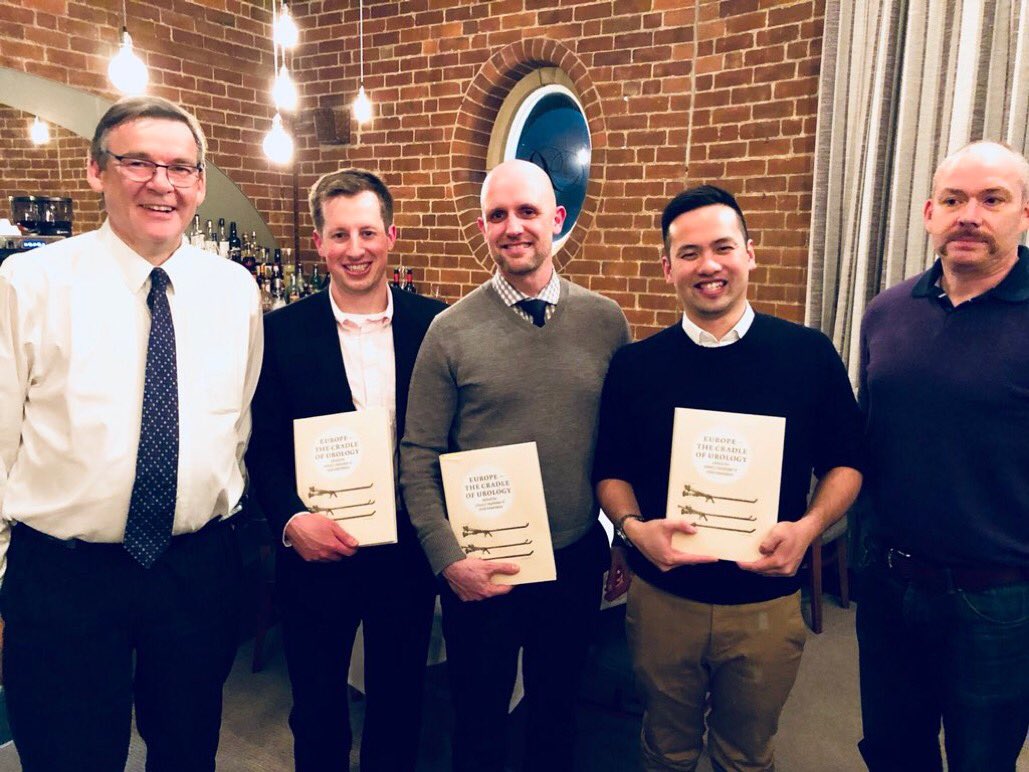
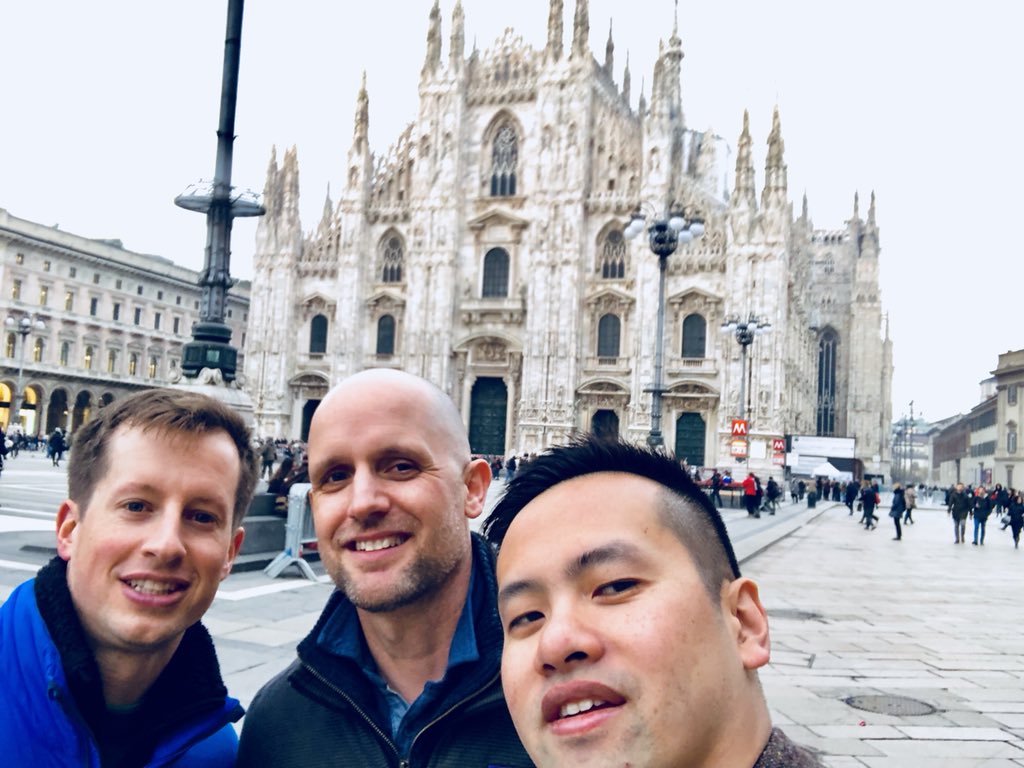
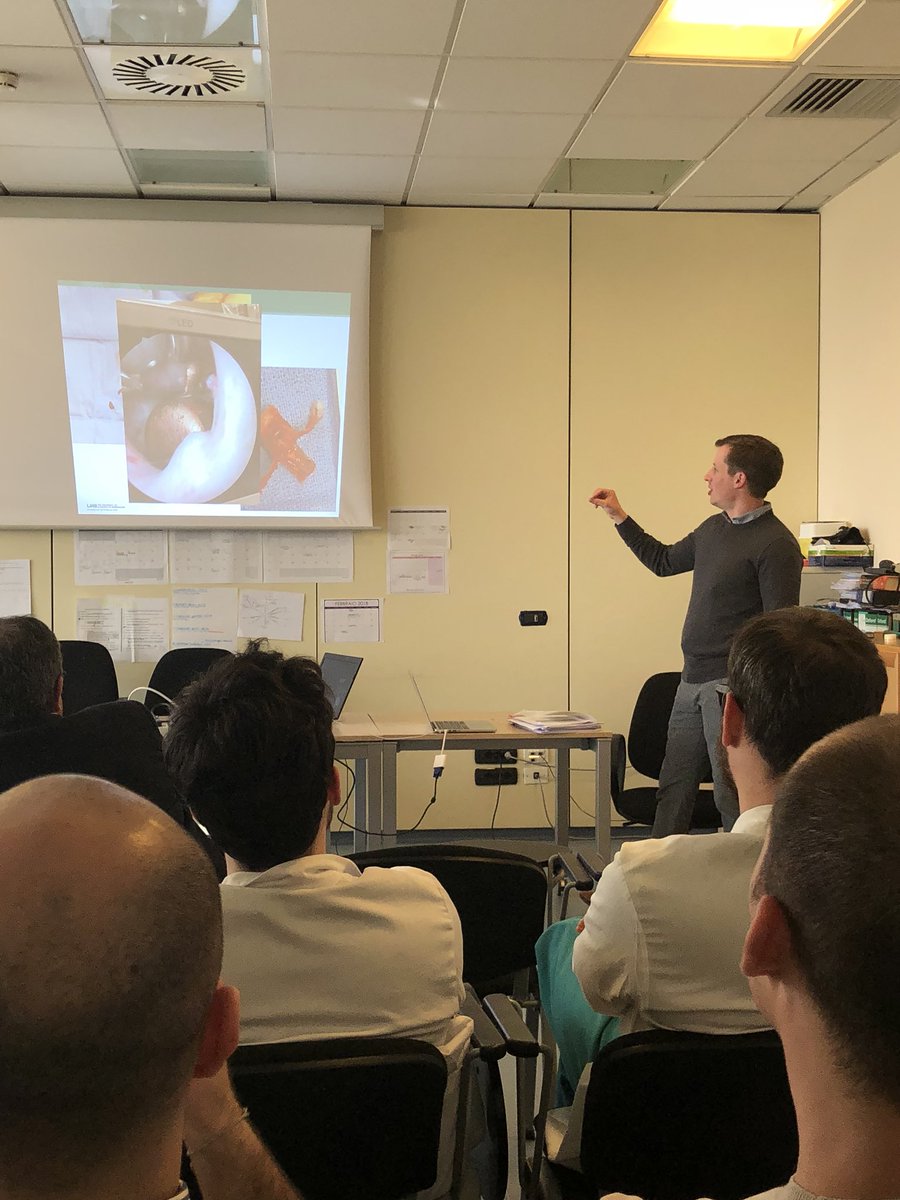
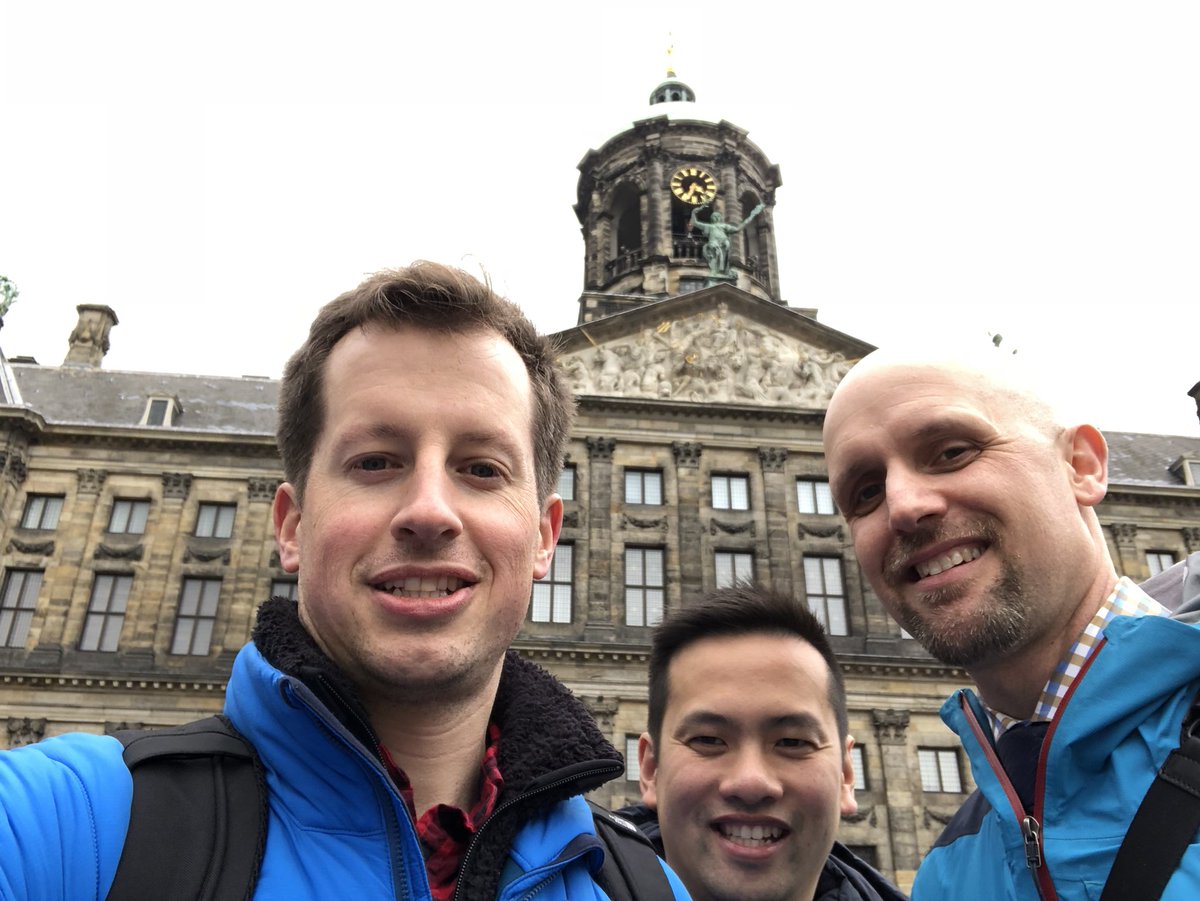
UAB Urology Match 2018
The Department of Urology is excited to welcome our new residents to UAB! We have three new PGY-1 residents joining the team, and are also excited to add two new PGY-2 residents this summer. Meet the team:
 Andrew Fang attended McGovern Medical School at the University of Texas at Houston. He’ll be joining UAB Urology as a PGY-1 this summer.
Andrew Fang attended McGovern Medical School at the University of Texas at Houston. He’ll be joining UAB Urology as a PGY-1 this summer.
 Joseph Fougerousse comes to UAB as a PGY-1 from Louisiana State University School of Medicine New Orleans.
Joseph Fougerousse comes to UAB as a PGY-1 from Louisiana State University School of Medicine New Orleans.
 Jennifer Rosen completed medical school at the University of Tennessee Health Science Center and will be joining UAB Urology as a PGY-1.
Jennifer Rosen completed medical school at the University of Tennessee Health Science Center and will be joining UAB Urology as a PGY-1.
 Robin Iriele will be joining UAB Urology as a PGY-2. After completing medical school at Case Western Reserve School of Medicine, she completed an internship at University Hospital in Cleveland Medical Center.
Robin Iriele will be joining UAB Urology as a PGY-2. After completing medical school at Case Western Reserve School of Medicine, she completed an internship at University Hospital in Cleveland Medical Center.
 Michael Kongnyuy attended the University of South Florida Morsani College of Medicine for medical school. After completing his internship at New York Presbyterian in Queens, NY., he will join UAB Urology as a PGY-2.
Michael Kongnyuy attended the University of South Florida Morsani College of Medicine for medical school. After completing his internship at New York Presbyterian in Queens, NY., he will join UAB Urology as a PGY-2.
Six UAB Urology Physicians Named to Best Doctors in America® List
Congratulations to Dr. Dean Assimos, Dr. James Bryant, Dr. David Joseph, Dr. Peter Kolettis, Dr. Keith Lloyd and Dr. Jeffrey Nix.
Best Doctors in America recognized UAB doctors from 39 specialties and 179 subspecialties, with the total number of national physicians included reflecting only 4 percent of doctors in America. The only way for a physician to be selected is to be peer-nominated and voted in by current Best Doctors winners.
Best Doctors is a global benefits provider and medical information services company that connects individuals facing difficult medical treatment decisions with the best doctors, selected by impartial peer review in more than 450 subspecialties of medicine, to review their diagnosis and treatment plans. Best Doctors prides itself on having more than 40 million members worldwide.
For more information, please visit BestDoctors.com.
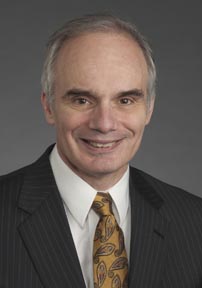 Dr. Dean Assimos
Dr. Dean Assimos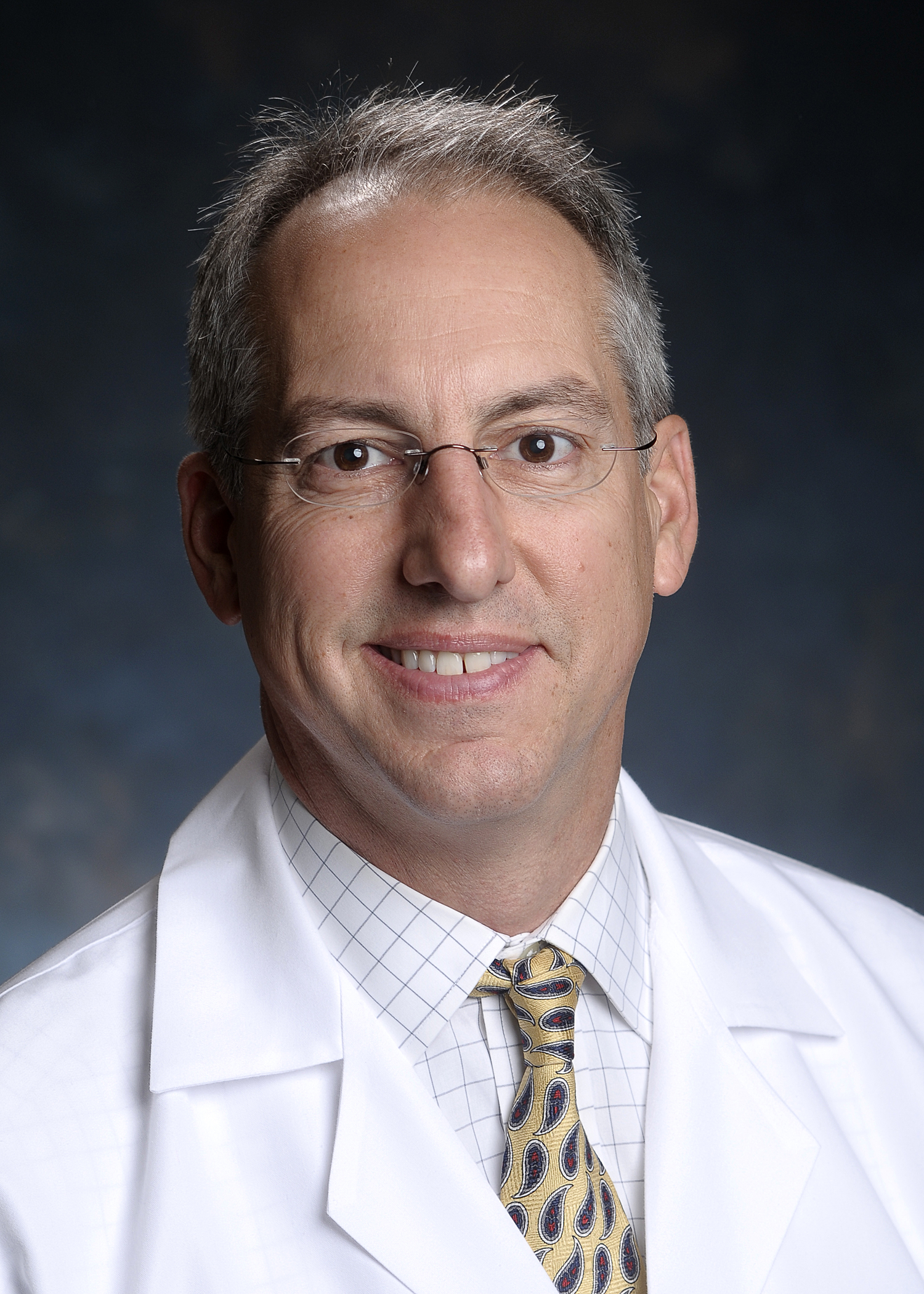 Dr. James Bryant
Dr. James Bryant Dr. David Joseph
Dr. David Joseph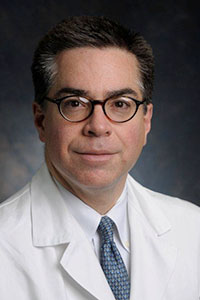 Dr. Peter Kolettis
Dr. Peter Kolettis Dr. Keith Lloyd
Dr. Keith Lloyd Dr. Jeffrey Nix
Dr. Jeffrey NixKidney Stone Research Lab Update
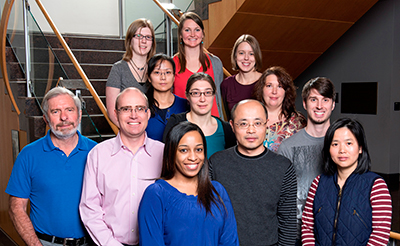 The UAB Department of Urology continues to be a leader in kidney stone research. As the department continues to expand its clinical and translational research, we hope you’ll check back often for updates.
The UAB Department of Urology continues to be a leader in kidney stone research. As the department continues to expand its clinical and translational research, we hope you’ll check back often for updates.
Alumni Spotlight: Dr. Courtney Shepard
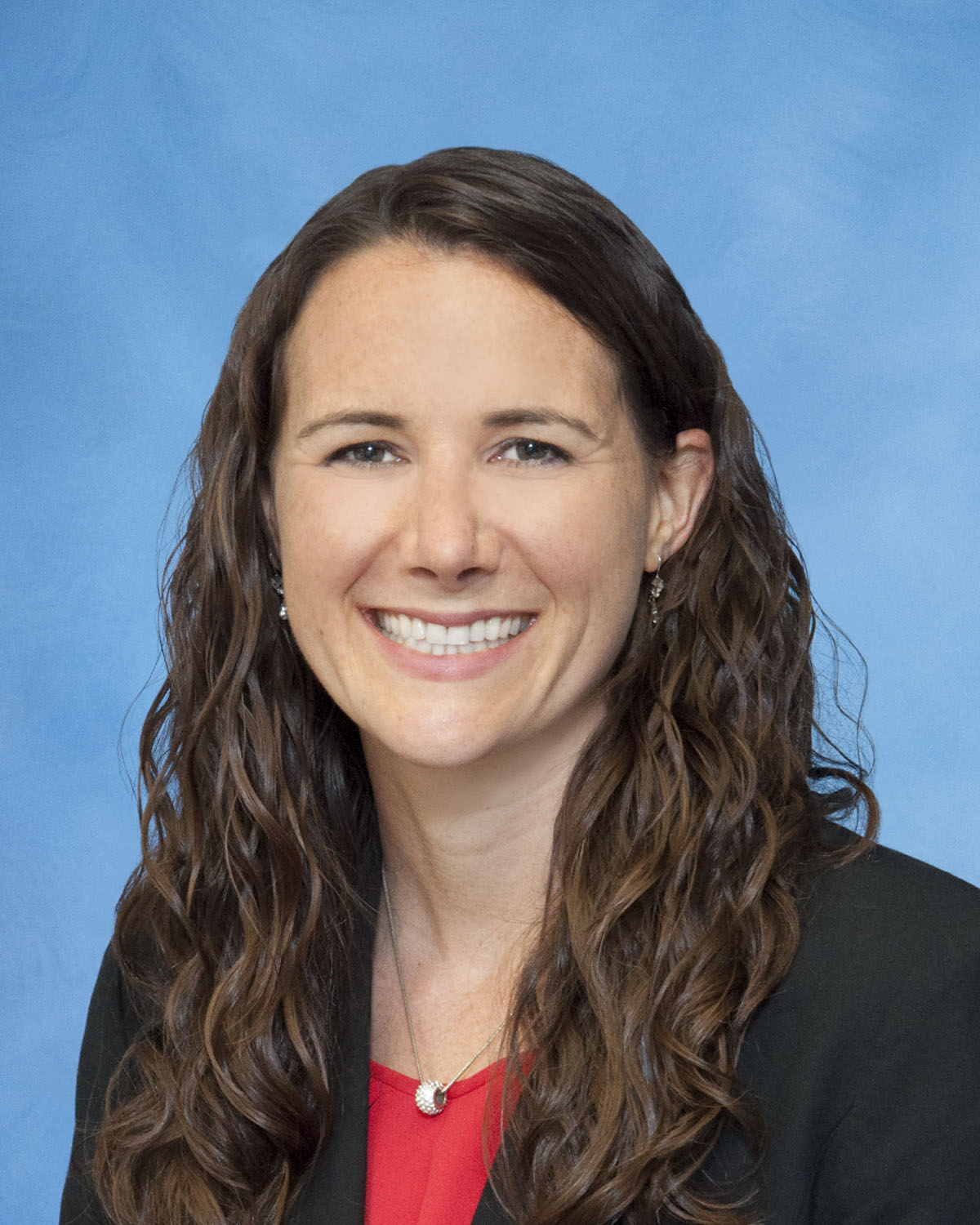 When did you graduate from the UAB Urology residency program?
When did you graduate from the UAB Urology residency program?I graduated in 2015.
Where are you now?
Ann Arbor, Michigan
What made you decide to be a urologist?
My grandfather battled with prostate cancer for 20 years before succumbing to it right before I started medical school. After that, I initially intended to go into urologic oncology to help men and families facing a similar diagnosis. But during residency, I found myself drawn to the pediatric population, and in particular those patients with physical disabilities such as spina bifida. My mom is a physical therapist with a passion for helping patients with physical disabilities and growing up I spent a lot of time in her office. I didn’t realize the impact that had on me until I got to residency.
What is your current practice and how did you choose to practice this area of urology?
I am currently completing my third year of a combined pediatric urology and health services research fellowship at the University of Michigan. My research is focused on transitions of care for patients with spina bifida and I am also working to create a transitional care clinic here (but we have a long way to go to catch up with UAB’s spina bifida clinic!). I am particularly passionate about helping these patients get the sexual and reproductive health care and education they need.
What aspect of your time at UAB do you believe was most valuable as you started your career?
UAB gets some of the craziest and most extreme pathology, which has been immensely helpful when I think about how I will evaluate and treat a patient with an unusual presentation or advanced disease. So far I haven’t seen anything I hadn’t seen before in residency.
Did you have a particular mentor while at UAB? If so, why were they a good mentor?
During every case, at some point I always tell the resident, “when I was resident, I had an attending who…” I’ve truly learned so much from each attending and have incorporated what they do into my own practice. I am so grateful to all of the faculty for all they taught me. I am sure Dr. Joseph thought he’d be done with me when I moved to the great white north, but I still call and email him for advice. He patiently taught me operative skills, encouraged me both clinically and in research, gave thoughtful advice and feedback, always made time to meet (which he still does), and was always ready with a witty comment at just the right time. He also taught me that much of the healing we can do as physicians comes not from what we do in the OR, but from how we care for patients and families through our words and interactions.
Give one piece of advice for current residents.
Drink lots of O’Henrys coffee. Eat as much Saws as possible. And salted chocolate chip cookies from Woodlawn Cycle. Walk outside between the OR and floor when you can—the sunshine helps. Make time to hang out with your coresidents and be there for them. And keep a journal. Draw out and write down the steps of every surgery with the different attendings. Remember the details. Write down new observations you make each time. Write down what you learn from intra-op and post-op complications. Write down new things you learn during conferences. One of my high school teachers used to always say “you are responsible for your own education.” I used to think that was bogus, but it couldn’t be more true. These 5 years are so hard and can seem so very long, but I promise they will end. And the details of procedures you used to do all the time will become hazy very quickly. This is the only time you have when so many experts are focused on teaching you all aspects of urology—you will need that knowledge at some point, so make the most of your time now.
What do you like to do in your free time?
My husband and I love to explore—backpacking, kayaking, traveling, generally trying anything new, and brining our dog along whenever possible. I also love to run, but with the way this winter is going, I may have to take up cross-country skiing instead.
A Movember Celebration
Participants enjoyed a night of food, drinks, networking and raffle prizes while discussing how UAB could make a difference in the way health services reach and support men.
The two departments also joined to create a fundraising team, UAB-Movember, with the Movember Foundation, the only multinational charity that aims to raise awareness and funds for research into men’s health issues. The team raised more than $1,000.
If you wish to get involved, it’s not too late! Please consider making a donation to team UAB-Movember by November 30th. Any amount will help change the face of men’s health.
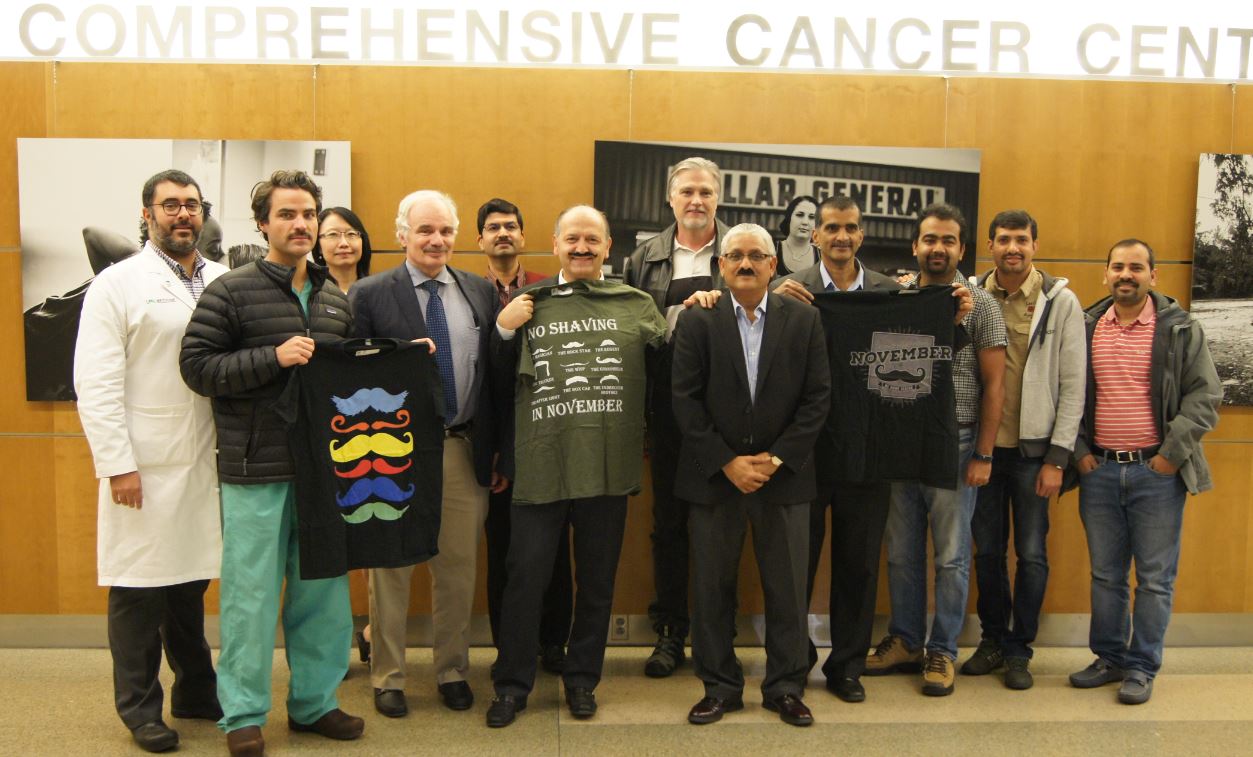
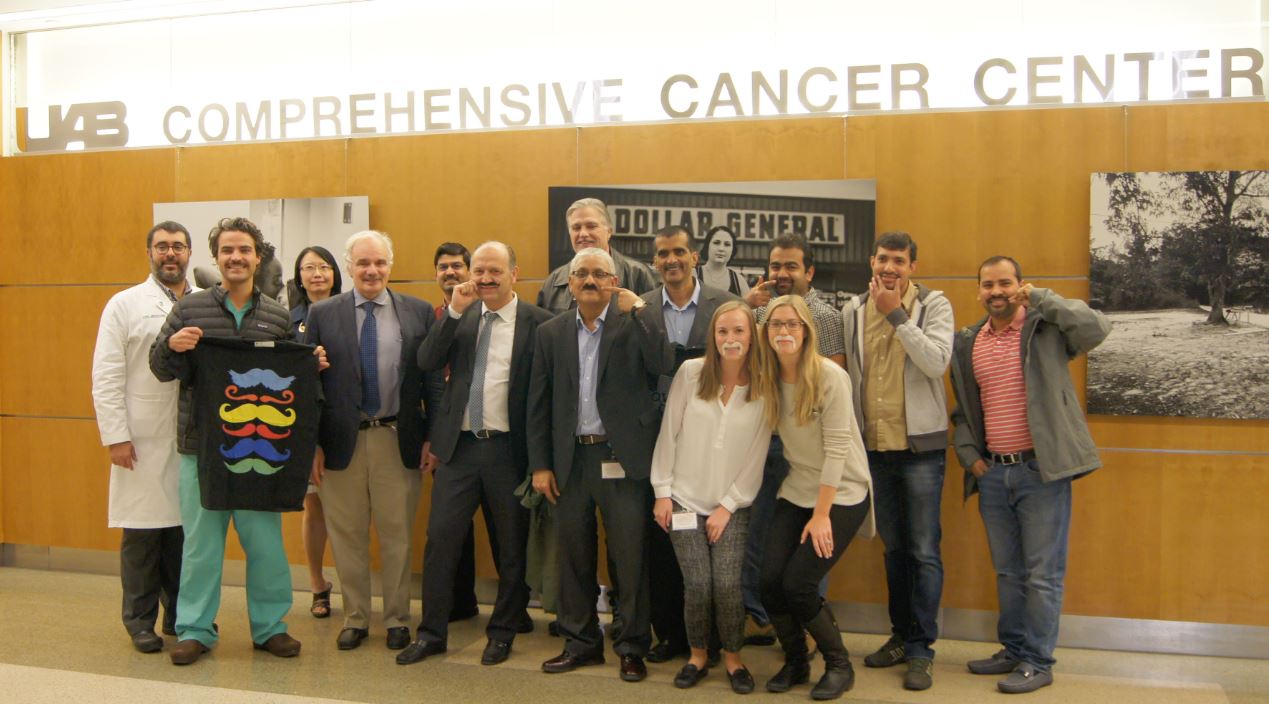
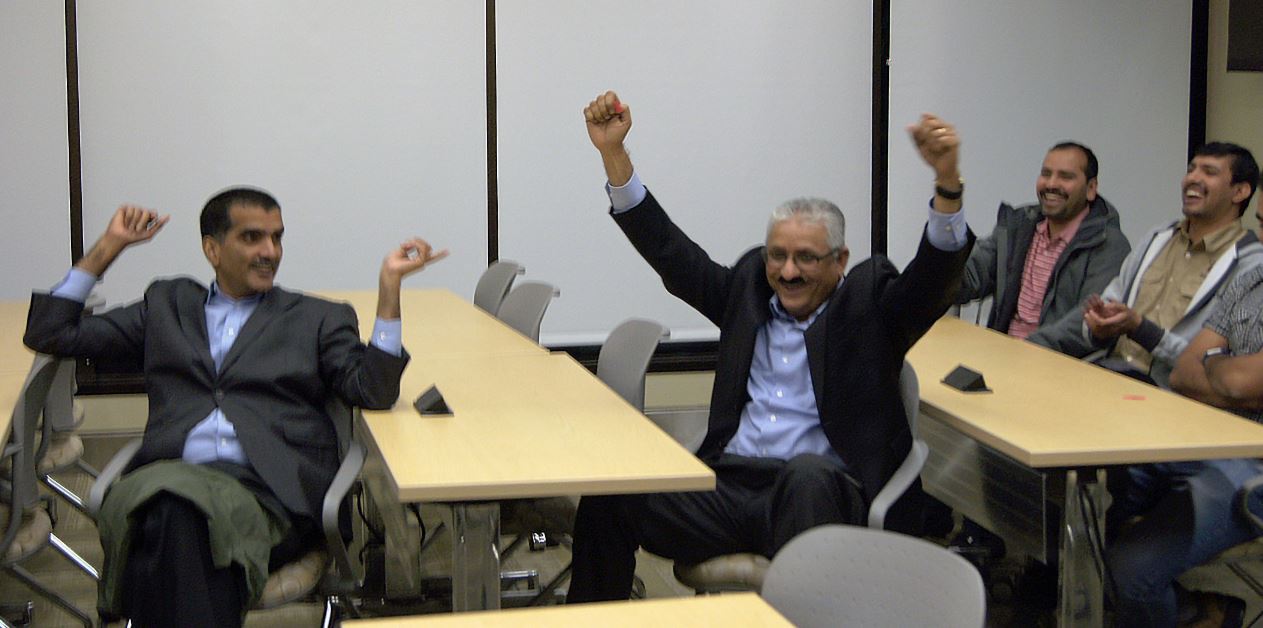
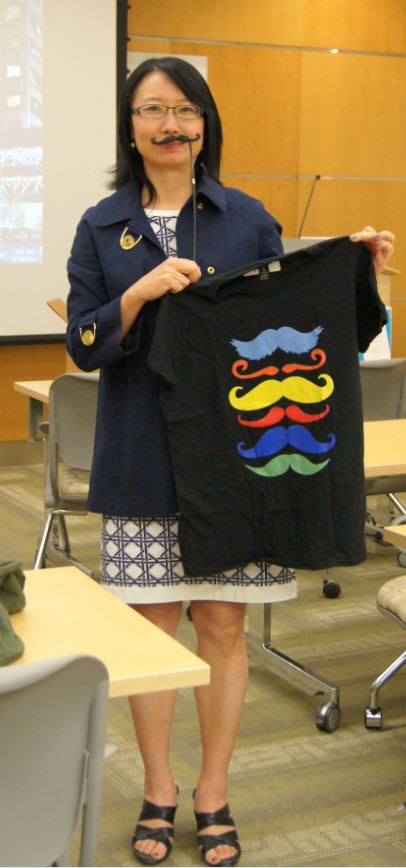
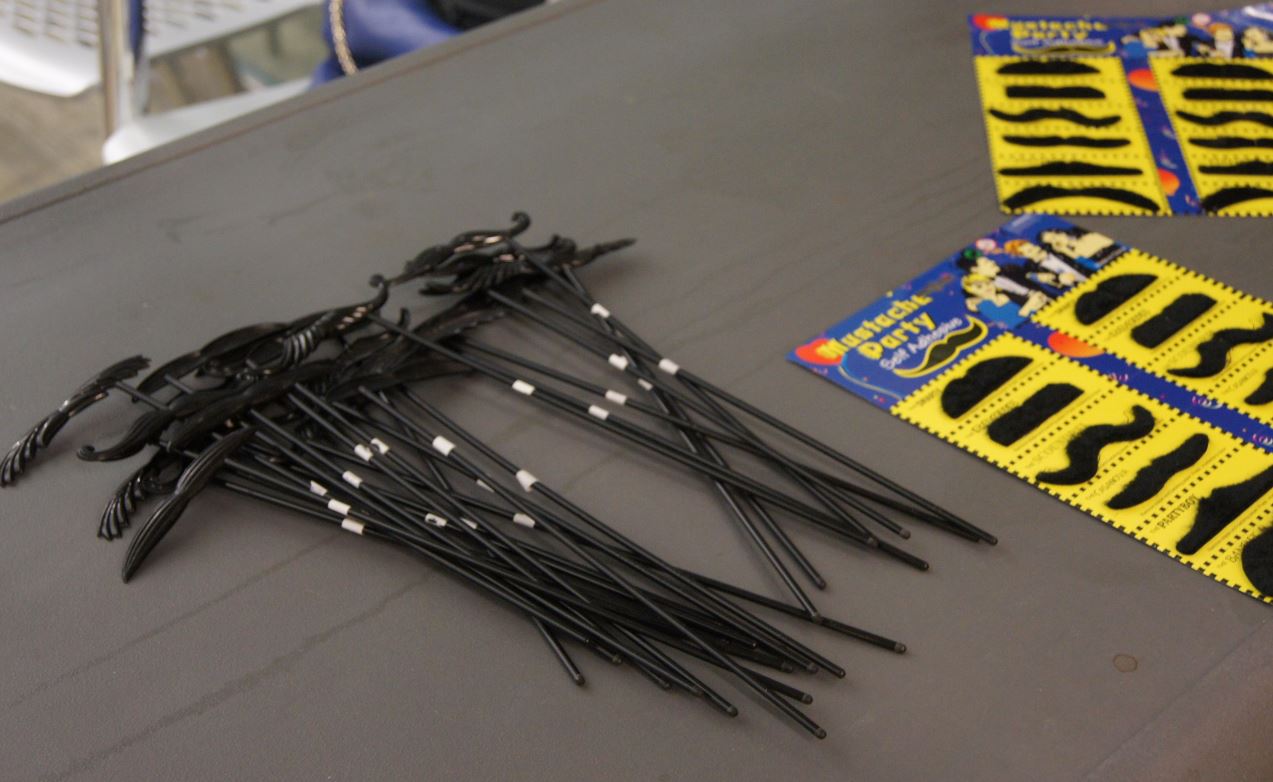
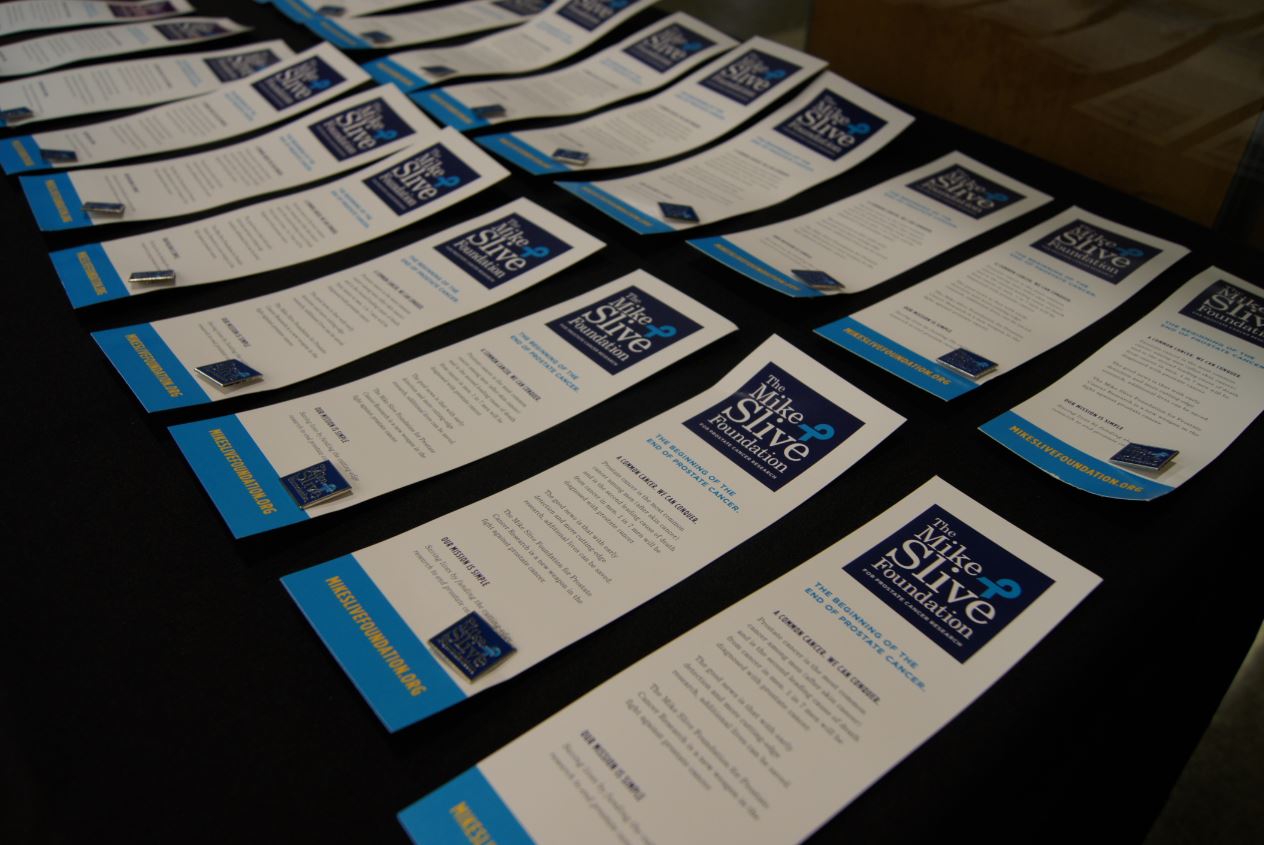
UAB Urology: A Leader in Kidney Stone Research
Tanecia Mitchell, Ph.D. and Sonia Fargue, Ph.D. have received NIH K01 grants, and John Knight. Ph.D. received a RO1 grant in the last year. Kyle Wood. M.D. was added as faculty last year and has research grants from the American Urological Association, Rare Kidney Stone Consortium and intramural grants from the Nutrition and Obesity Research Center.
John Knight, Ph.D., was recently the senior author of an article February 2017 in Journal of the American Society of Nephrology titled An Investigational RNAi Therapeutic Targeting Glycolate Oxidase Reduces Oxalate Production in Models of Primary Hyperoxaluria. This article lead Alnylam Pharmaceuticals to begin clinical trials using this target in the treatment of patients with primary hyperoxaluria. This partnership has led to the investigation of other targets, with Kyle Wood, M.D., as the project leader, that could be used to treat kidney stone disease.
Recently, the group presented on the effects in mice of targeting lactate dehydrogenase in the liver using RNA interference. They demonstrated a more than 75 percent decrease in urinary oxalate excretion in a mouse model of primary hyperoxaluria type I, which represents a complete correction of the hereditary abnormality. Primary Hyperoxaluria is a rare genetic disease that results in recurrent kidney stones and ultimately end-stage renal disease. Currently, the only reliable treatment is a kidney/liver transplant.
Billy Tingle, BSRN recently joined the group and has focused on patient recruitment for studies focusing on the role of the microbiome and obesity in kidney stone disease. Studies are ongoing to determine if subjects can be colonized with Oxalobacter formigenes, a bacterium that is capable of degrading oxalate in the gastrointestinal tract. Colonization with this may reduce kidney stone disease.
Overview: Gulf Coast Urology Seminar 2017
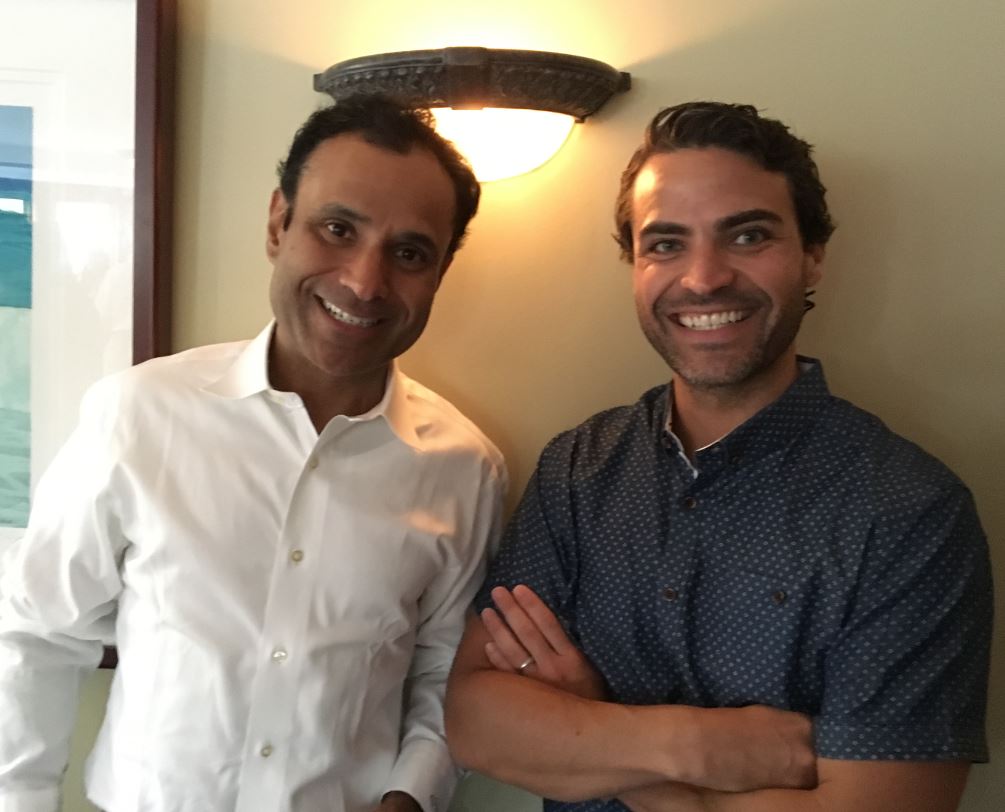 The UAB Department of Urology hosted another great session at the Gulf Coast Urology Seminar in Sandestin in July. Attendees were fortunate to have outstanding lectures from visiting professors Dr. Ganesh Palapattu from the University of Michigan, Dr. Ojas Shah from Columbia University and Dr. Drew Peterson from Duke University. Each was able to impart upon new knowledge in urologic oncology, stone disease and complex urologic reconstruction.
The UAB Department of Urology hosted another great session at the Gulf Coast Urology Seminar in Sandestin in July. Attendees were fortunate to have outstanding lectures from visiting professors Dr. Ganesh Palapattu from the University of Michigan, Dr. Ojas Shah from Columbia University and Dr. Drew Peterson from Duke University. Each was able to impart upon new knowledge in urologic oncology, stone disease and complex urologic reconstruction.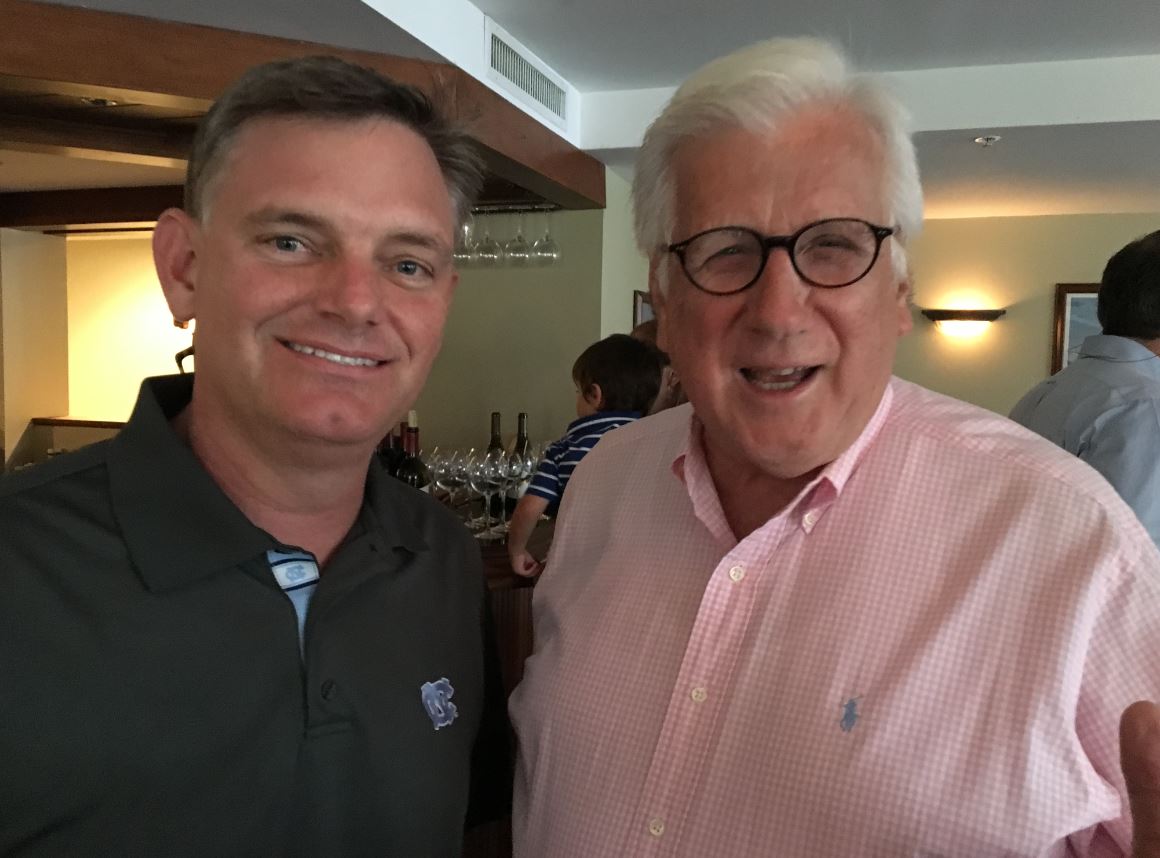
2017 American Urological Association Annual Meeting
UAB Urology held multiple activities and presentations this year. Dr. Soroush Rais-Bahrami was a faculty for the Hands-on MRI/US fusion biopsy course where he lent his expertise on the technology to guide urologists implementing this platform in their practice. Along with PGY-5 Dr. Win Shun Lai, he also presented data on renal cell carcinoma (RCC) in young patients. A review of the last five years at UAB found that 98/604 patients with RCC were less than age 46 years. The good news for these patients was that early onset RCC tended to be lower grade and organ confined, though more patients underwent radical nephrectomy as opposed to nephron-sparing surgery. The latter finding suggests that perhaps these patients are being over treated for their disease.
Dr. Lai and Dr. Dean Assimos presented a systematic review and meta-analysis on factors associated with post-operative infection after percutaneous nephrolithotomy. They found that preoperative urine culture, intraoperative renal pelvis culture, stone culture, the number of access points, the need for blood transfusion, stone size and duration of procedure were significantly associated with post-operative infection.
From Dr. Tanecia Mitchell’s lab, PGY-4 Dr. Vidu Yarlagadda presented a study on the effect of calcium oxalate crystals on mitochondrial dysfunction in monocytes. Their study found that in human monocyte cell lines, exposure to calcium oxalate crystals caused a dose-dependent decrease in mitochondrial function and cell viability. The result was upregulation of stress response proteins, which may have implications for cellular dysfunction in calcium oxalate stone formers. Dr. Yarlagadda also presented Dr. Patrick Selph's experience with the robotic-assisted use of the appendix as a ureteral interposition for ureteral stricture disease. The case was a 32-year-old gentleman with a 5 cm. proximal ureteral stricture, and the robot was used to interpose the appendix between the proximal and distal ureter. At 10 months after surgery, the patient is pain free and has no hydronephrosis.
Dr. Kyle Wood presented his work on increased urinary excretion of glycolate and oxalate in obese and diabetic mice models, as well as the association of hemoglobin A1c and urinary oxalate in stone formers. A review and video of his work can be found here.
Dr. Peter Kolettis moderated a poster session on infertility therapy, and Dr. Selph was a faculty mentor in a speed mentoring session for urology residents interested in questions about career, work-life balance, leadership and research.
Last but not least, UAB Urology had its first annual alumni banquet at the AUA. Faculty members were excited to see Dr. Katherine Cameron, a 2007 graduate of the program, who works in Knoxville, TN., stomping out urologic disease. Faculty also caught up with Dr. Corey Passman, another 2007 graduate, who is enjoying his practice in Lynchburg, VA. Courtney Shepard, a recent graduate of UAB in 2015, loves her experience at the University of Michigan Department of Urology where she is finishing up her pediatric fellowship. Dr. James Lingeman from Indiana University graced was also in attendance, and it was fascinating to hear his experience with HoLEP and the early days of shockwave lithotripsy.
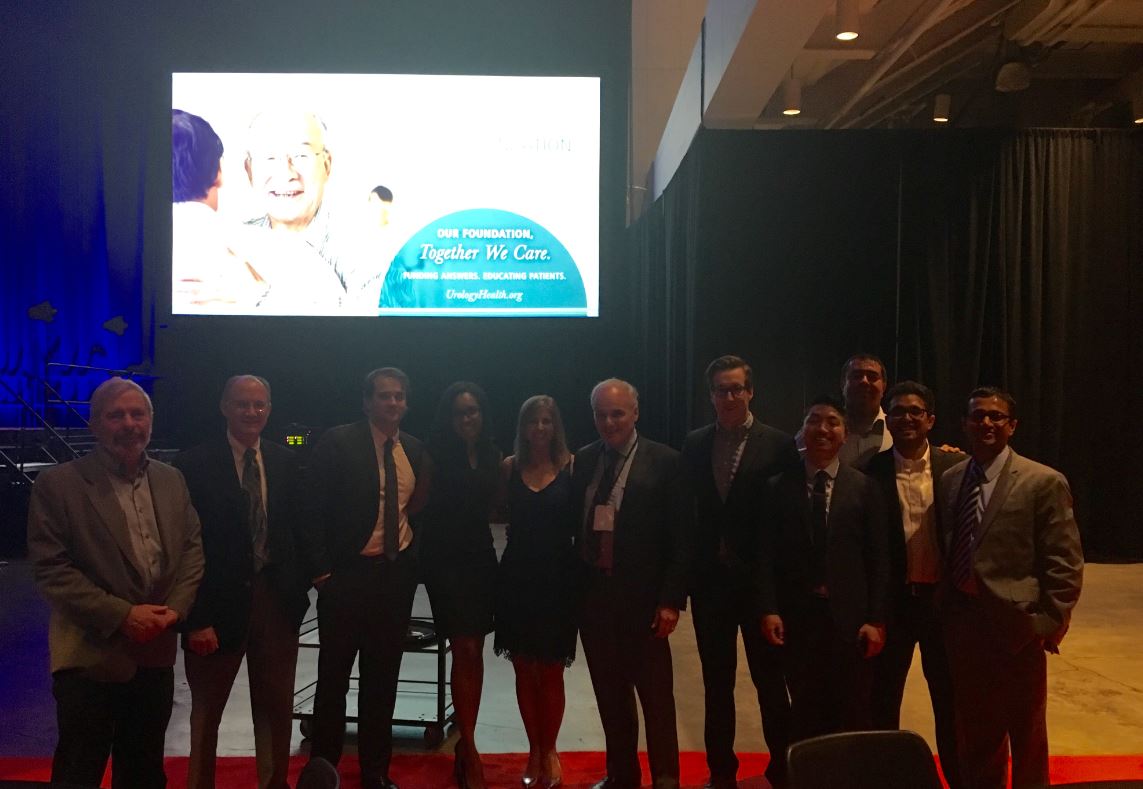
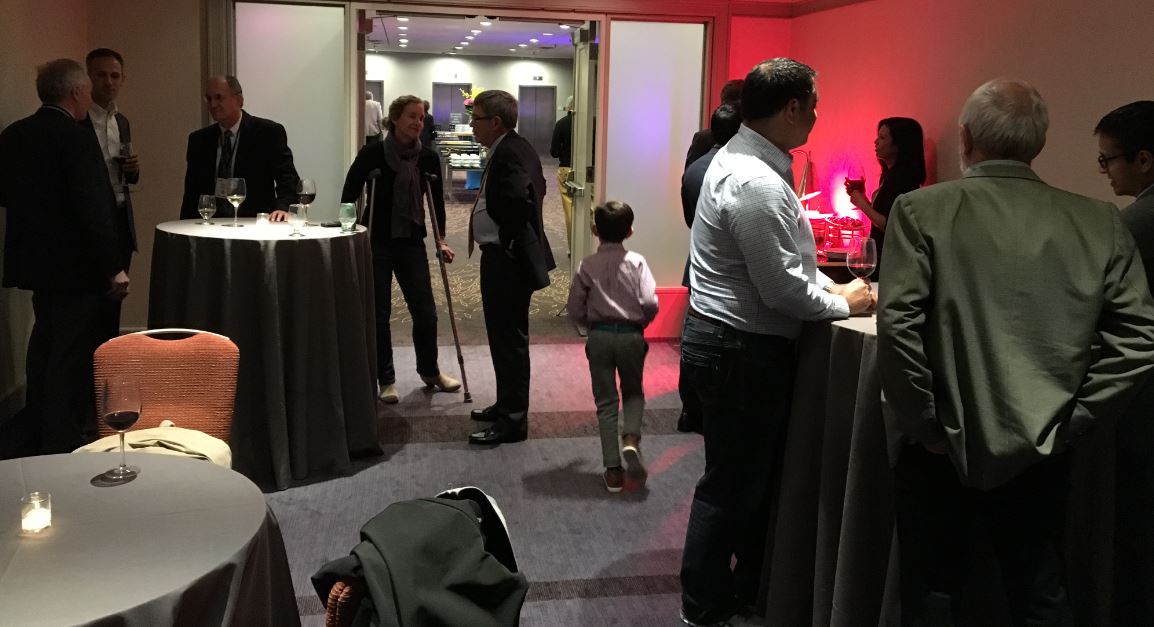
Joseph Receives Reginald C. Bruskewitz Distinguished Alumni Award
 The University of Wisconsin Department of Urology awarded David B. Joseph, MD., Chief of Pediatric Urology at UAB, with its inaugural Reginald C. Bruskewitz Distinguished Alumni Award at the annual American Urological Association (AUA) Conference in Boston.
The University of Wisconsin Department of Urology awarded David B. Joseph, MD., Chief of Pediatric Urology at UAB, with its inaugural Reginald C. Bruskewitz Distinguished Alumni Award at the annual American Urological Association (AUA) Conference in Boston.Dr. Joseph graduated from the Wisconsin Urology residency program in 1985. He went on to complete a pediatric urology fellowship at Harvard. Since then, he has built an outstanding program at UAB and contributed to the field through active involvement in professional and academic societies and as Assistant Editor of Journal of Urology.
Congratulations, Dr. Joseph!
UAB Urology ranked #20 in U.S. News Best Hospitals
“UAB Urology is the only nationally ranked urologic program in Alabama, and we believe this recognition reflects our commitment to providing outstanding patient care,” said Dean G. Assimos, M.D., Chair, UAB Department of Urology.
A hospital’s score for Urology is based on various data categories, including volume of high-risk patients, nurse staffing and patient survival. UAB Urology was ranked highly for survival odds, patient safety, number of patients, advanced technologies and patient services, among other factors.
Overall, UAB Hospital was again ranked No. 1 in Alabama. Nine other UAB adult specialties joined Urology in the nation’s top 50, an increase from last year, and four others were named High Performing.
“We are pleased that UAB Hospital continues to be recognized for providing world-class health care to the residents of our state, region and nation,” said Health System CEO Will Ferniany, Ph.D. “The consistent excellence of our faculty and staff is a reassuring constant during times of change and uncertainty in our country’s health care system. We are proud of our national rankings, and proud to be acknowledged as Alabama’s best hospital.”
UAB’s highest ranked programs include:
- Rheumatology (10)
- Nephrology (14)
- Pulmonology (17)
- Urology (20)
- Diabetes and Endocrinology (21)
- Gynecology (26)
- Cardiology and Heart Surgery (30)
- Neurology and Neurosurgery (34)
- Geriatrics (47)
- Ear, Nose and Throat (50)
- Cancer (High Performing)
- Gastroenterology and GI Surgery (High Performing)
- Orthopedics (High Performing)
- Rehabilitation (High Performing)
U.S News and World Report also recognized UAB for High Performance in seven adult procedures/conditions, including chronic obstructive pulmonary disease, heart bypass surgery, heart failure, abdominal aortic aneurysm repair, aortic valve surgery, colon cancer surgery and lung cancer surgery.
Hundreds of UAB physicians named to prestigious 2015-16 Best Doctors in America list
Hundreds of the top physicians in the nation practice at UAB Medicine, according to the latest edition of the Best Doctors in America®.
The 2015 list recognizes 391 UAB physicians, the most in Alabama, in 38 specialties listed who are among the top 5 percent of clinicians in the United States, as voted by their peers.
View the full story and list of UAB physicians here.
Dangle establishes a pediatric robotic urologic surgery program at Children's
Dr. Pankaj Dangle has joined Children’s of Alabama as a pediatric urologist and has recently has recently established a pediatric robotic surgery program.
Robotic surgery allows specialists to perform surgery with tiny incisions and minimal effect on surrounding healthy tissue. Robotic surgery has several benefits, including a faster recovery time, less pain, little or no scarring, minimal blood loss, and a shorter hospital stay.
Dr. Dangle earned his medical degree from University of Mumbai, where he also completed training in general surgery and urology. He completed his urology residency at the University of Chicago and his pediatric urology fellowship at the Children’s Hospital of Pittsburgh.
Dr. Dangle’s practice focuses on robotic surgery, complex hypospadias, disorders of sex development, vesicoureteral reflux, myelomeningocele, ureteropelvic junction obstruction, renal stone disease and urinary reconstruction. He also serves as an assistant professor in the University of Alabama at Birmingham School of Medicine Department of Urology.
He is from Mumbai, India, lived for last several years in Midwest, and lives in Homewood with his family.
He is passionate about pediatric urology, being a proud father, and he takes utmost interest in managing patients and their families through their illness with personalized care.
- Alumni Spotlight: Ben Martin, M.D.
- Successful Interview Season Complete
- UAB Surgical Team Proud of Outcomes From ERAS Pathway
- Resident shares research experience
- Mitchell receives K01 Award from NIH
- UAB and Baptist Health partner to open new clinic in Montgomery
- 2015-2016 Update and Doximity Voting
- Welcome New Faculty: Drs. Dangle and Wood
- Kidney Stone Group Clinic Now Accepting Referrals
- SESAUA Update 2016
- Outgoing and Incoming Residents 2016
- Nix Named Director of Robotic Surgery
- Dr. Killian shares her training experience in Zambia
- Assimos gives two talks at AUA